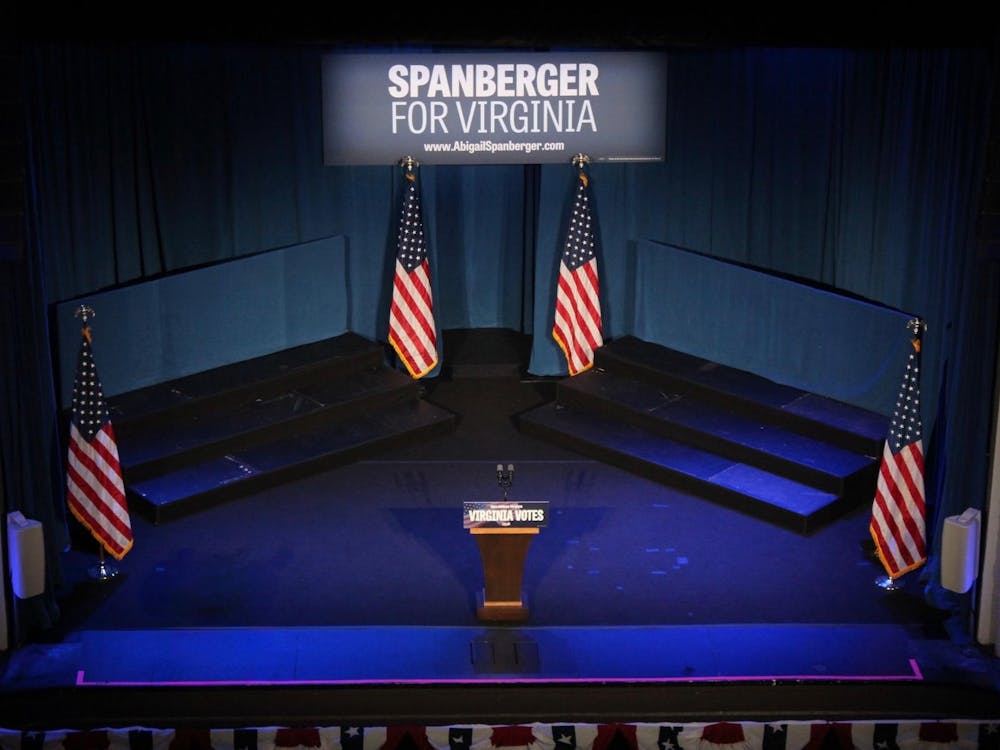The Big White Tent outside Newcomb Hall hosted speakers from around the country for Anti-Oppression Day yesterday.
The event, in its second year, brought together spokespeople from different advocacy groups to give speeches about what they see as injustices against populations around the world.
"We wanted to unite all the forces fighting oppression around the world," said Bokar Ture, vice president of the Griot Society. The Griot Society, along with Critical Mass and the Arab Student Organization, sponsored Anti-Oppression Day.
At the event, WaBun-Inini, a spokesman for the American Indian Movement, compared the plight of American Indians to that of Arabs in the Palestinian territories killed by Israelis. He also compared their troubles to the indigenous peoples in Guatemala killed by the Guatemalan government in recent decades in its effort to put down a rebellion. He criticized the U.S. government's aid to Israel and its former support of Guatemalan counterrevolutionary efforts.
"Maybe Americans are going to stop sinning when they pay the price for their sins," WaBun-Inini said, "Maybe Sept. 11 was a wake-up call."
Another American Indian speaker opposed the University's plans to participate in the Mount Graham Observatory, which is being built on what some call lands sacred to the Apache people in Arizona.
Much of the discussion, which was attended by close to 100 students, focused on U.S. foreign policy.
Another target of criticism was the U.S. media, which speakers and organizers said often does not portray the plight of oppressed people around the world.
"You have to be active in getting information," said Jessica Wagstaff, one of the organizers of the event and the president-elect of the Griot Society.
A spokesman for the organization Stop U.S. Funded Tax Aid to Israel Now called for the United States to stop giving military aid to Israel and for universities to divest from companies holding assets in Israel.
Among the other speakers at Anti-Oppression Day were representatives of immigrant agricultural workers in Florida who spoke about their working conditions and a survivor of torture in Nigeria who criticized the actions of oil companies. Another activist condemned U.S. sanctions against Iraq, and a representative of the Charlottesville-based group Tradelocal spoke about globalization. Politics Prof. Allen Lynch spoke about the devastation of Chechnya in its war with Russia.
"This is really just the beginning," said Yahya Fouz, the president of the Arab Student Organization. "We are laying the foundation for a network of organizations at the University."
Attendees praised the event.
"It's definitely one of the most eye-opening experiences I've had at the University," second-year College student Gandhrav Telhan said.
"I really enjoyed the fact that there was a wide variety of speakers," fourth-year College student Jenny Stein said. "Oppression comes in many forms."
Some of the issues discussed at Anti-Oppression Day will be raised again at demonstrations in coming days.
A rally is planned for this afternoon at the Taco Bell on Emmet Street to protest the low wages the fast-food chain pays workers who harvest its tomatoes.
A series of rallies will be held this Saturday through Monday in Washington, D.C., in protest of Israeli policies toward Palestinians, World Bank regulations on third-world nations, U.S. aid to Colombia, and U.S. narcotics policy.
Several groups of University students plan to attend the Washington, D.C., demonstrations, Fouz said.






